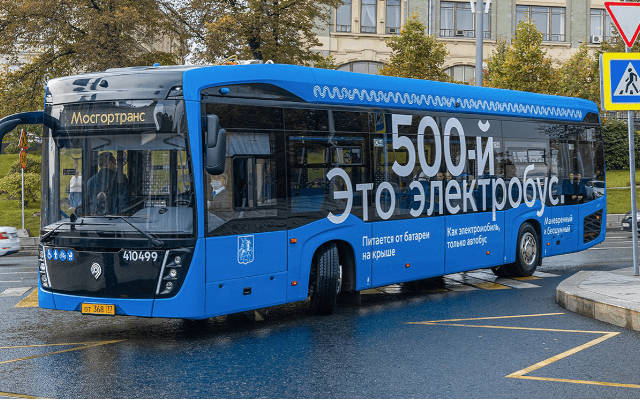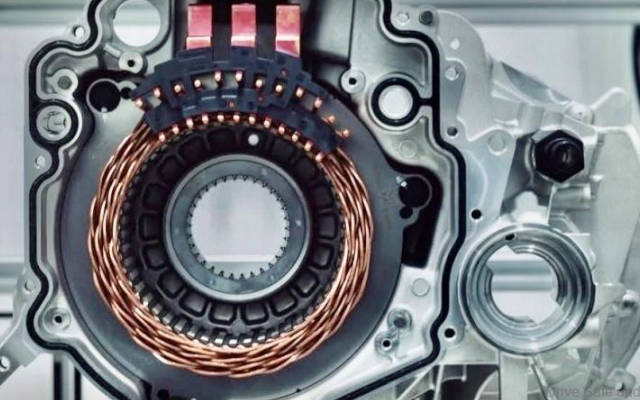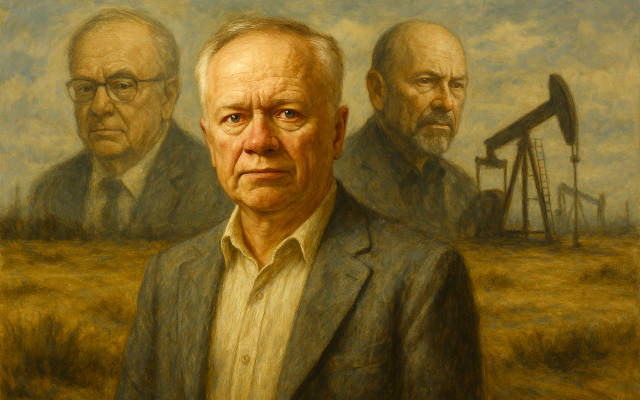 EDITOR'S PICK
EDITOR'S PICK
Moscow's Electric Bus Expansion Amid the Ukraine War
30 Aug 2025 | Synopsis
 Moscow is expanding its electric and autonomous bus fleet, now the largest in Europe, but the Ukraine war has slowed progress. Sanctions and supply shortages hinder access to key tech, forcing a shift to domestic production. Fuel shortages from refinery attacks, cyber disruptions, and strained budgets add pressure. Despite setbacks, Moscow aims to replace diesel buses by 2030, though war-driven economic strain threatens long-term transit modernization.
Moscow is expanding its electric and autonomous bus fleet, now the largest in Europe, but the Ukraine war has slowed progress. Sanctions and supply shortages hinder access to key tech, forcing a shift to domestic production. Fuel shortages from refinery attacks, cyber disruptions, and strained budgets add pressure. Despite setbacks, Moscow aims to replace diesel buses by 2030, though war-driven economic strain threatens long-term transit modernization.Rivian's Maximus Drive Unit Boosts R2 SUV Power Density & Manufacturing Efficiency
30 Aug 2025 | Synopsis
 Rivian's Maximus drive unit, launching with the R2 SUV in early 2026, boosts power density by 40% over previous models. It’s smaller, lighter, and easier to manufacture thanks to a simplified stator, integrated cooling and electronics, and fewer fasteners. A redesigned wiring harness further streamlines production, reduces weight enhancing scalability and efficiency.
Rivian's Maximus drive unit, launching with the R2 SUV in early 2026, boosts power density by 40% over previous models. It’s smaller, lighter, and easier to manufacture thanks to a simplified stator, integrated cooling and electronics, and fewer fasteners. A redesigned wiring harness further streamlines production, reduces weight enhancing scalability and efficiency.The Biggest Untold Story of 2025: Energy Fragility and Economic Risk
29 Aug 2025 | Synopsis
 A deepening energy crisis is quietly reshaping global stability. Aging infrastructure, declining EROEI, and financial overextension expose systemic vulnerabilities. As oil production plateaus and economic models falter, the risks of supply shocks and cascading failures grow. Chris Martenson—economic researcher and creator of The Crash Course—guides viewers through this urgent, underreported threat, rekindling the long denigrated "Peak Oil" debate
A deepening energy crisis is quietly reshaping global stability. Aging infrastructure, declining EROEI, and financial overextension expose systemic vulnerabilities. As oil production plateaus and economic models falter, the risks of supply shocks and cascading failures grow. Chris Martenson—economic researcher and creator of The Crash Course—guides viewers through this urgent, underreported threat, rekindling the long denigrated "Peak Oil" debateBMW Just Cranked Out Its 3 Millionth Electrified Vehicle
28 Aug 2025 | Synopsis
 BMW has built its 3 millionth electrified vehicle - a 330e plug-in hybrid assembled in Munich. This milestone includes both EVs and plug-in hybrids. In the first half of 2025, over 25% of BMW's global deliveries were electrified. The company also recently produced its 1.5 millionth fully electric vehicle, a Mini Countryman SE. BMW expects electrified sales to keep growing as part of its tech-neutral strategy.
BMW has built its 3 millionth electrified vehicle - a 330e plug-in hybrid assembled in Munich. This milestone includes both EVs and plug-in hybrids. In the first half of 2025, over 25% of BMW's global deliveries were electrified. The company also recently produced its 1.5 millionth fully electric vehicle, a Mini Countryman SE. BMW expects electrified sales to keep growing as part of its tech-neutral strategy.EV Adoption Stymied By Curious American Trait: Garage Clutter
28 Aug 2025 | Synopsis
 Telemetry's 2025 EV Charging Market Report reveals a surprising barrier to electrification: junky garages. One-third of U.S. homeowners can’t park in their own garages, limiting access to Level 2 charging. With 80% of EV charging done at home, cluttered spaces and costly installations threaten adoption. The report urges behavioral shifts and infrastructure investment to close the equity gap.
Telemetry's 2025 EV Charging Market Report reveals a surprising barrier to electrification: junky garages. One-third of U.S. homeowners can’t park in their own garages, limiting access to Level 2 charging. With 80% of EV charging done at home, cluttered spaces and costly installations threaten adoption. The report urges behavioral shifts and infrastructure investment to close the equity gap.
 Si Exclusive
Si Exclusive
Hydrogen's Flight Path: Fuel Cells, Turbines, and the Economics of Clean Aviation
10 Oct 2025 |  Aviation is shifting from Jet A to four fuel systems: electricity, hydrogen (fuel cell and combustion), SAF, and petroleum. Fuel cells suit short-haul aircraft; hydrogen combustion may power long-range jets. SAF bridges legacy fleets. Hydrogen costs - $5-$7/kg today, possibly $2/kg by 2040 - impact ticket prices and infrastructure decisions. Airport authorities, airlines, and governments will share deployment costs. Each fuel has distinct environmental pros and cons shaping aviation's net-zero future.
Aviation is shifting from Jet A to four fuel systems: electricity, hydrogen (fuel cell and combustion), SAF, and petroleum. Fuel cells suit short-haul aircraft; hydrogen combustion may power long-range jets. SAF bridges legacy fleets. Hydrogen costs - $5-$7/kg today, possibly $2/kg by 2040 - impact ticket prices and infrastructure decisions. Airport authorities, airlines, and governments will share deployment costs. Each fuel has distinct environmental pros and cons shaping aviation's net-zero future.
 11 Oct 2025 02:39:35 UTC |
RECENT PODCASTS
BYD Soars - Cheaper Tesla Models - The Bolt is Back - Rivian
SEARCH RSSTREAM
 48 New Postings In Past 24 Hours
48 New Postings In Past 24 Hours
Category:mobility
Region:NoAmerica
Date:10 Oct 2025
Category:autonomy
Region:NoAmerica
Date:10 Oct 2025
Category:mobility
Region:AsiaPacific
Date:10 Oct 2025
Category:finance
Region:NoAmerica
Date:10 Oct 2025
Category:policy
Region:NoAmerica
Date:10 Oct 2025
Category:mobility
Region:AsiaPacific
Date:10 Oct 2025
Category:mobility
Region:AsiaPacific
Date:10 Oct 2025
Category:finance
Region:NoAmerica
Date:10 Oct 2025
Category:finance
Region:IndoAsia
Date:10 Oct 2025
Category:energy
Region:Global
Date:10 Oct 2025